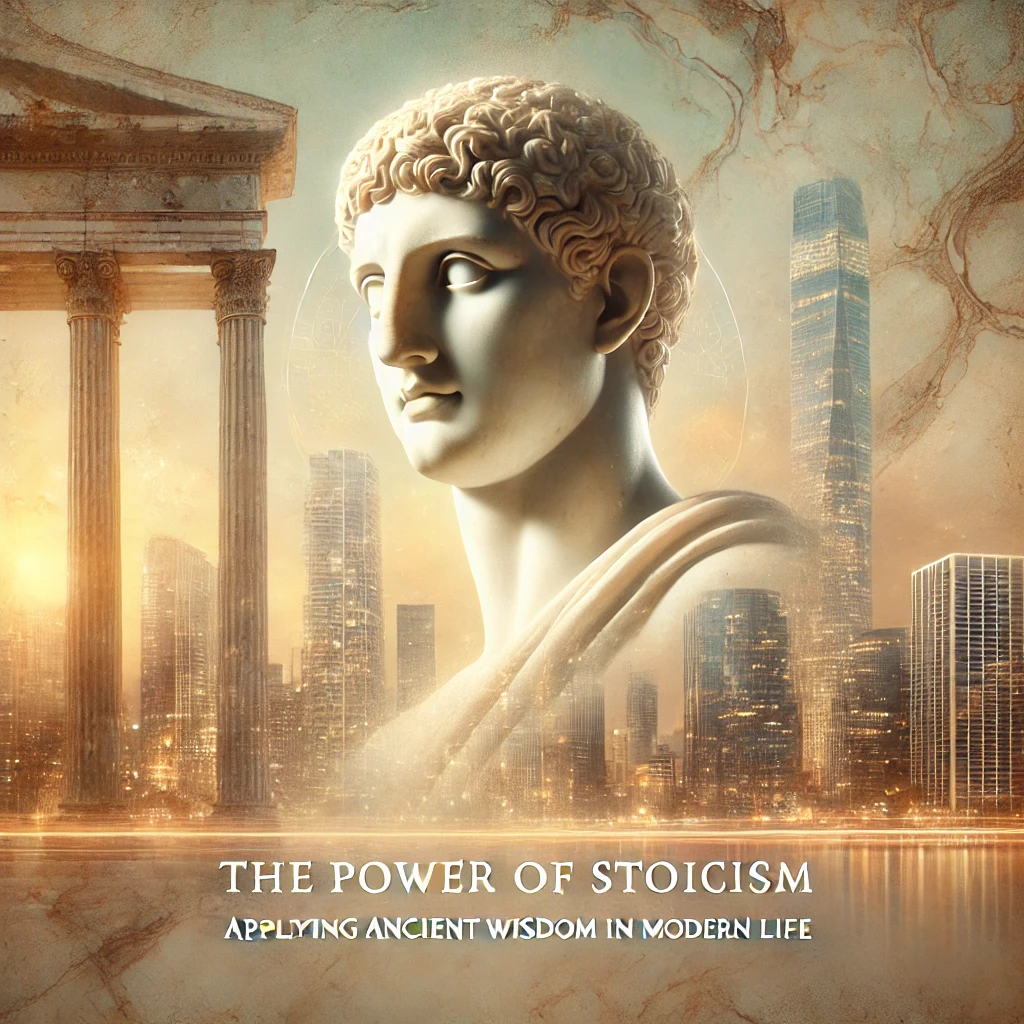The Power of Stoicism: Applying Ancient Wisdom in Modern Life
Introduction
Life often feels like a complex puzzle, filled with unexpected challenges and curveballs. In trying times, many of us seek guidance on how to stay resilient and composed. An ancient philosophy, Stoicism, offers profound wisdom that remains relevant today. Its principles can empower us to navigate life’s tumultuous journey with grace and strength.
What is Stoicism?
At its core, Stoicism is a school of philosophy that originated in Athens around the 3rd century BCE. Founded by Zeno of Citium, it flourished in the Roman Empire, gaining prominence among philosophers and emperors alike. This philosophy advocates for a life of virtue in accordance with reason, promoting emotional resilience and inner peace.
Stoicism teaches us to cultivate self-control and fortitude as a means of overcoming destructive emotions. It provides a framework for personal growth, urging individuals to focus on what they can control and to accept what they cannot. By emphasizing reason, Stoicism encourages a thoughtful response to life’s challenges.
Key Principles of Stoicism
The Stoic philosophy revolves around four cardinal virtues: wisdom, courage, justice, and temperance. Wisdom allows us to discern what is truly valuable. Courage empowers us to confront fear and adversity. Justice guides us to treat others fairly, and temperance helps us practice self-control.
Another central principle is the dichotomy of control. This concept posits that while we cannot control external events, we can control our responses to them. We find freedom by not being enslaved by our circumstances, but rather by our perceptions and actions.
Additionally, Stoicism teaches the importance of living in harmony with nature. By understanding our place in the universe, we learn to accept the ebb and flow of life, finding peace amidst chaos.
Benefits of Practicing Stoicism
Practicing Stoicism offers numerous benefits that enhance our mental and emotional well-being. By internalizing its principles, we gain a clearer perspective that fosters resilience. We become better equipped to handle stress and anxiety, reducing their impact on our daily lives.
Furthermore, Stoicism instills a sense of calm and tranquility. By relinquishing control over external factors, we free ourselves from needless worry and frustration. This mindset promotes contentment and gratitude for the present, encouraging us to live more fulfilling lives.
Through Stoicism, personal growth becomes attainable. This philosophy challenges us to reflect upon our actions and beliefs critically. As we strive to align with Stoic virtues, we embark on a continuous journey of self-improvement and moral development.
Stoic Techniques for Daily Life
Incorporating Stoic techniques into everyday life can significantly enhance our personal and professional experiences. One effective practice is negative visualization. By imagining worst-case scenarios, we prepare ourselves emotionally and reduce the shock of potential adversity. This exercise helps us appreciate what we already have and cultivates resilience.
Another useful tool is the practice of journaling. Reflecting on daily thoughts and actions allows us to learn from our experiences. By articulating our feelings and responses, we gain invaluable insights that promote self-awareness and personal growth.
Additionally, practicing mindfulness aligns well with Stoic principles. Being present in the moment fosters greater focus and equanimity. Mindfulness enables us to detach from negative emotions and maintain composure in challenging situations.
Modern Applications
Stoicism may be ancient, but its principles find ample application in modern life. In a fast-paced world, where stress and anxiety are prevalent, Stoicism offers a sanctuary of calm. Its teachings resonate with individuals from all walks of life, from business leaders to students.
Let me share a personal anecdote. During a particularly stressful period at work, I found solace in Epictetus’ words: “It’s not what happens to you, but how you react to it that matters.” This reminder helped me maintain focus and poise, turning obstacles into opportunities for growth.
In our relationships, Stoicism encourages empathy and understanding. By recognizing that everyone faces their own challenges, we practice compassion. This approach improves our connections, leading to supportive and harmonious interactions.
Conclusion
Stoicism serves as a timeless beacon of wisdom, guiding us through life’s unpredictability. Its principles of virtue, control, and harmony empower us to rise above adversity with dignity and grace. By embracing Stoic teachings, we unlock a path to personal growth and resilience.
In the face of life’s uncertainties, remember the Stoic mantra: “Amor fati”—love of fate. Embrace each moment with courage and composure. By living in accordance with nature and reason, we find strength and peace in a turbulent world.



